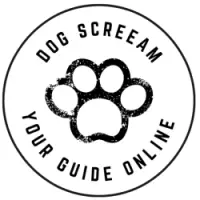Dogs can most certainly eat Basil, but they should be given it in small amounts. Basil is safe for dogs to consume, so it is alright to share your spaghetti dinner with your dog occasionally, but he should not regularly eat large servings of the plant.
Basil is safe for most dogs to nibble on once in a while because it doesn’t carry any toxic or poisonous risks that would cause adverse effects. However, if your dog has an allergic reaction after eating Basil, immediately take him to the vet. Your pup may have an allergy to Basil and could need medical attention.

If you are looking for a tasty yet healthy snack idea for your friend, try microwaving his kibble in a moist paper towel. Not only will your dog have fun ripping into the package, but he’ll enjoy the tasty snack too!
Is Basil Safe For Dogs?
Most dogs can digest small amounts of Basil without problems, but too much of a good thing isn’t always recommended. While most dogs will not experience any negative consequences from eating Basil occasionally, large amounts of the herb might cause an upset stomach. Be sure to keep feeding your dog basil sparingly to avoid stomach issues.
Dogs can eat Basil, but it should be given to them in small doses.
What Are The Benefits Of Basil For Dogs?
1) Basil is rich in antioxidants
The essential oils found in Basil are an excellent source of antioxidants. Antioxidants like vitamin K, Vitamin A, and beta-carotene help fight cancerous cells.
2) Helps to prevent urinary tract infections
Basil can also help prevent bladder stones by encouraging the production of urine, which flushes out toxins from bladder tissues. It also prevents bacteria growth, which otherwise leads to bladders infections.
3) Helps treat insomnia
Basil induces sleep at night because of its mild sedative effects on humans; the same goes for dogs! So if your dog is suffering from sleeplessness and anxiety, it might be time you fed them some basil to treat their sleeplessness and anxiety.
4) Basil in dog food is a good preventative for fleas and ticks
Ants hate Basil. This is because there is a compound in the essential oils found in Basil that can be used to keep ants away from their homes. Dogs fed with food having Basil also tend to have lesser chances of getting bitten by mosquitoes, thus minimizing the risk of contracting Lyme disease.
5) Prevents dogs from getting sick [by feeding them, Basil]
Feeding your dogs with diets rich in spice-like ‘basil’ helps them fight disease-causing bacteria better.
6) Helps reduce anxiety
As mentioned earlier, Basil leaves contain mild sedative effects that can help improve mood swings and anxiety disorders. This is useful for dogs who suffer from anxiety and depression.
7) Basil helps with better metabolism
The high fiber content of Basil can help your dog digest their food easily, and it also supports the good bacteria in their gut to remain healthy – which is pretty much like having a super digestive system.
8) Prevents cancer
Basil has been found to contain anti-carcinogenic properties, thus helping prevent cancer from occurring in dogs.
9) Helps remove bad breath in dogs
Bad breath is one of the common problems encountered by many dogs who tend to have dental issues due to missing or decaying teeth. The high concentration of essential oils in Basil acts as an excellent mouth freshener for your furry friend.
10) Basil is rich in iron
Iron deficiency is a major cause of anemia among pets, especially dogs. 11) Encourages sleek coat growth
Pets fed with dog food having Basil can develop strong, shiny coats because Basil helps improve your pet’s immunity, which leads to improved hair health and growth.
12) Insect repellent properties Basil has insect-repelling properties which help repel insects like ticks, mosquitoes, and other parasites – thus making it useful for preventing infections caused by these parasites.
13) Helps prevent seizures
Basil prevents epileptic seizures in dogs due to its mild sedative effects on the nervous system.
14) Prevents osteoarthritis
The use of Basil can prevent or delay degenerative bone diseases in dogs.
15) Basil is rich in vitamin K
Out of all the essential nutrients found in Basil, vitamin K is the most important one because it helps prevent excessive bleeding when your dog may have an injury. It also protects against calcification of blood vessels – which prevents heart diseases and strokes from occurring.
How Can My Dog Eat Basil?
Small amounts of dried Basil shouldn’t cause any problems for your dog – but make sure you give them no more than a pinch! You must also consider what you feed the Basil with. Avoid mixing Basil with high-fat foods since they can cause digestive issues for your dog.
One of the most commonly recommended ways to give Basil to dogs is by adding it to kibble or wet food (in very tiny amounts). This will help mask any potential off-flavors and allow you to monitor the amount of Basil they’re ingesting. Note that some dogs might enjoy having Basil as their only treat now and then. However, this restricts the availability of the herb, so it may be more practical to mix it into their regular food instead!
Dogs can eat Basil in small amounts – but don’t have too much at once.
Side Effects Of Basil On Dogs
Basil’s toxicity is most prevalent when the plant is consumed fresh, either directly or as an ingredient in another food source.
1. Vomiting
One of the earliest signs of basil poisoning is decreased activity and lack of interest in food. If untreated, this typically progresses to vomiting and possible diarrhea. Affected animals may also suffer from dehydration, severe in young puppies or older pets with chronic illnesses.
2. Allergic Reactions
While most pets tolerate Basil well in small quantities, some will experience allergic reactions when exposed to large amounts of basil or basil oil. Common symptoms include redness, itchiness, and swelling of the face, paws, or other body parts where contact was made with the allergen. Less commonly, some pets may develop anaphylactic shock in response to basil exposure.
3. Hives
Hives are another possible side effect of basil ingestion in pets caused by histamine release during allergy reactions. The most common types of hives resulting from basil toxicity are raised itchy bumps on the skin surface that result in minor skin irritation and discomfort for your pet until they subside a few hours after exposure.
4. Hypersalivation And Drooling
If ingested, large amounts of fresh Basil can trigger excessive salivation and other side effects of basil poisoning, including vomiting, diarrhea, and potential weight loss. However, dried Basil does not produce the same results.
5. Stomach And Intestinal Issues
A small amount of fresh or dried Basil will typically cause only mild stomach upset, if any at all. But consuming a large quantity can cause abdominal pain, gas, and potentially bloody stool. Additional side effects resulting from exposure to Basil include drooling, depression, and fever.
6. Skin Rashes
Suppose your pet experiences hives or low body temperature due to an allergic reaction to basil oil. In that case, they may also develop skin rashes on areas where contact was made with the allergen, including the face, paws, or of their neck or belly. In some cases, a respiratory reaction may also develop in response to basil exposure.
7. Seizures
If your pet ingests a large amount of fresh Basil, particularly a small breed dog or a puppy under four months old, it can cause seizures due to the high quantities of calcium oxalate and saponins in the plant.
8. Toxicity Reactions
Ingesting any quantity of basil oil is very dangerous for pets because it contains compounds called furanocoumarins which trigger severe toxicity reactions if consumed in large amounts. The most common symptoms associated with consuming too much basil oil include vomiting, diarrhea, depression, and lack of coordination, progressing to tremors and seizures if treatment is delayed or not administered at all.
9. Respiratory And Urinary Issues
Fresh Basil contains high quantities of calcium oxalate and saponins, typically resulting in severe respiratory or urinary tract irritation if consumed by pets in large amounts. Additionally, the calcium oxalate crystals can cause skin irritation when touched by your pet after contact with basil oil. These reactions are most commonly associated with dermal exposure, where pets groom themselves after contact with the plant or its oil.
10. Weight Loss And Muscle Weakness
Pets that ingest fresh Basil may also exhibit signs of weight loss due to what is known as pseudomembranous colitis, an often painful condition caused by disruption of beneficial flora causing inflammation and watery diarrhea. In addition, some pets that ingest a significant amount of Basil may also suffer from muscle weakness or tremors.
Dosage
Avoid feeding your dog more than a pinch of dried Basil at once, and be wary of any undesirable side effects such as an upset stomach or diarrhea. If you decide to give your dog basil as a treat, make sure there are no other ingredients in the food that can cause problems – like high-fat foods. Feeding it with kibble or wet food (and mixing very small amounts of Basil into it) is recommended to mask its taste and allow you to track how much they’re eating easily. You should always monitor your dog after feeding them Basil and note if they show signs of any side effects.
Most dogs can enjoy eating small amounts of Basil occasionally, and it is also safe for them to do so. However, avoid overindulging them in the herb as this can cause stomach issues. Make sure you monitor their stool after digesting Basil.
